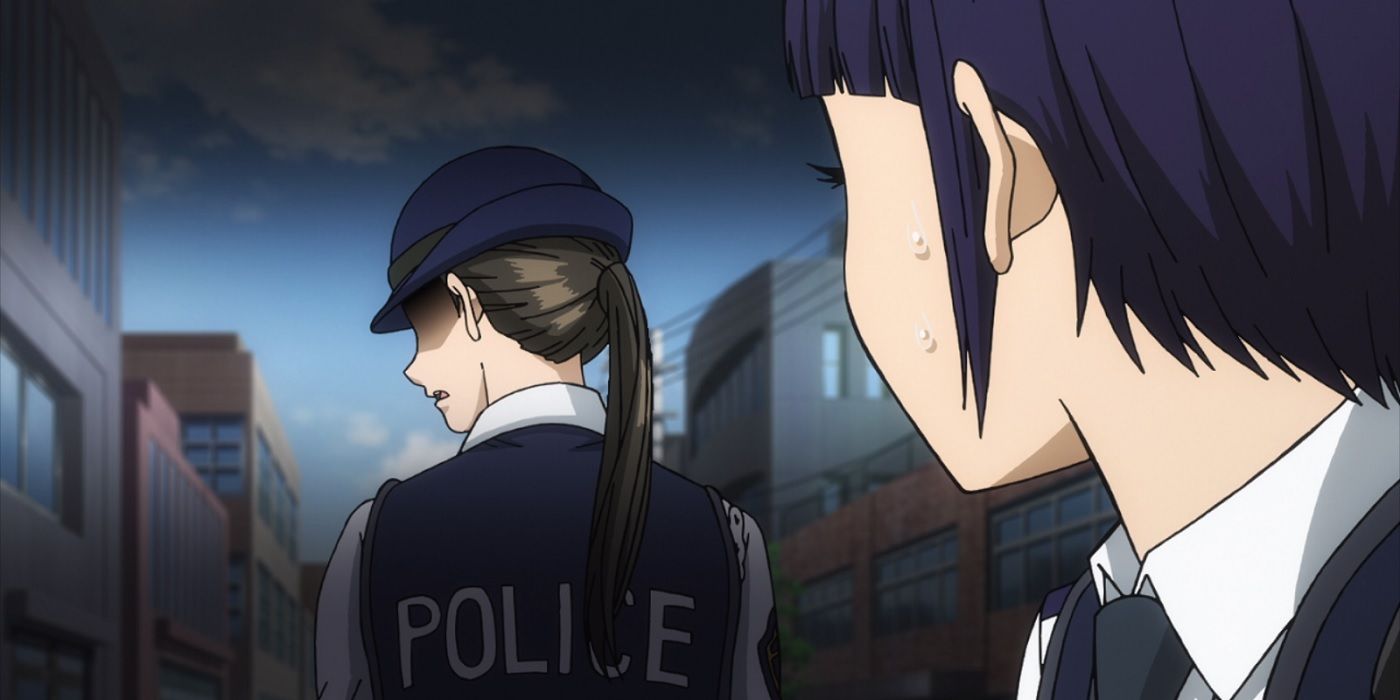Just as in Western media, there are plenty of anime stories that heavily feature or are entirely centered around members of the police force. From thrillers such as Death Note and supernatural mysteries like Bungo Stray Dogs to cyberpunk thrillers like Psycho-Pass and even classic shonen action/adventure titles such as Naruto, anime is filled with characters whose job it is to track down criminals and bring them to justice.
However, it’s clear from the portrayals of many of these characters -- especially when an anime is set in a fairly realistic version of modern-day Japan rather than a future or past reimagining -- that Japan tends to see police in quite a different light than some Western cultures. In particular, a stark contrast can be noticed in viewpoints between Japan and America when looking at recently released anime with contemporary Japanese settings, including Police in a Pod (Hakozume: Kouban Joshi no Gyakushuu) and The Millionaire Detective – Balance: UNLIMITED (Fugou Keiji: Balance:Unlimited).
In today’s often ultra-political landscape in the U.S., particularly in the aftermath of both general civil unrest and numerous race-related incidents, it’s not difficult to see that opinions regarding the police in America can be extremely divided. Many people view police officers as belonging to an institution that is inherently untrustworthy, violent or corrupt, and are not shy about saying so. Conversely, in Japan -- a country whose population of roughly 125 million are 98% ethnically Japanese -- day-to-day police officers tend to have much different associations.
This is likely in part due to the neighborhood 'police boxes' called koban that are located throughout the country. Numbering approximately 6,000 in total, these mini police stations are staffed by uniformed officers who are typically viewed as helpful and approachable, as koban function as major lost-and-found hubs and a place for those unfamiliar with the area to ask for directions. It’s not unusual for police who work there to provide maps for lost tourists or even guide them personally, and officers also regularly accept reports of lost items or accept found ones from well-meaning members of the public, from umbrellas and baby strollers to cameras and wallets. It's therefore no surprise that anime such as Police in a Pod and Millionaire Detective paint cops and their stories in a way that would be unthinkable in present-day America.
Police in a Pod, for example, is a 2022 slice-of-life comedy anime following two women police officers: the initially unenthusiastic rookie Kawai Mai and her far more experienced supervisor Fuji Seiko. Kawai is only working as a police officer because it was the one civil servant exam that she was able to pass. Meanwhile, Fuji was allegedly fired from her former detective role for workplace bullying, and her outwardly kind persona belies a quick temper. In the first episode alone, she can be seen swearing under her breath at passing motorists, then getting joyfully excited when she’s able to issue a ticket and suspend someone’s license in retaliation for being rude to her -- all of which is passed off as part of the show’s comedy.
Meanwhile, 2020’s anime-original The Millionaire Detective – Balance: UNLIMITED tells the story of male detective Katou Haru and his new 'partner' -- a ridiculously wealthy man named Kanbe Daisuke -- whose seeming lack of morals constantly clash with Katou’s own obsession for justice. A comedy-mystery series, Millionaire Detective also sometimes gets serious, especially when it comes to Katou’s past trauma.
Demoted from his previous division after an incident rendered him incapable of firing a gun, Katou’s personal storyline is resolved near the end of the series when he at last overcomes his psychological barriers and can now shoot without hesitating -- a "proper detective" again rather than merely a civil servant, as Kanbe puts it. This is intended as completely unironic and heartfelt drama; a fact that raised some eyebrows among Western audiences.
In the case of both Police in a Pod and Millionaire Detective, what’s viewed as inoffensive humor and drama by their respective creators simply wouldn’t fly were these same stories, characters and messages replicated in any American-produced story. While in the U.S., shows about foul-tempered beat cops who hold grudges and detectives who defeat their inner demons by discharging their weapons would come across as insensitive and tone-deaf at absolute best, in Japan, it’s evident that police are seen through a very different lens.




